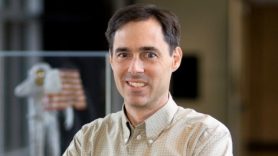- Diseases
- Acoustic Neuroma (14)
- Adrenal Gland Tumor (24)
- Anal Cancer (66)
- Anemia (2)
- Appendix Cancer (16)
- Bile Duct Cancer (26)
- Bladder Cancer (68)
- Brain Metastases (28)
- Brain Tumor (230)
- Breast Cancer (718)
- Breast Implant-Associated Anaplastic Large Cell Lymphoma (2)
- Cancer of Unknown Primary (4)
- Carcinoid Tumor (8)
- Cervical Cancer (154)
- Colon Cancer (164)
- Colorectal Cancer (110)
- Endocrine Tumor (4)
- Esophageal Cancer (42)
- Eye Cancer (36)
- Fallopian Tube Cancer (6)
- Germ Cell Tumor (4)
- Gestational Trophoblastic Disease (2)
- Head and Neck Cancer (6)
- Kidney Cancer (124)
- Leukemia (344)
- Liver Cancer (50)
- Lung Cancer (288)
- Lymphoma (284)
- Mesothelioma (14)
- Metastasis (30)
- Multiple Myeloma (98)
- Myelodysplastic Syndrome (60)
- Myeloproliferative Neoplasm (4)
- Neuroendocrine Tumors (16)
- Oral Cancer (100)
- Ovarian Cancer (170)
- Pancreatic Cancer (164)
- Parathyroid Disease (2)
- Penile Cancer (14)
- Pituitary Tumor (6)
- Prostate Cancer (144)
- Rectal Cancer (58)
- Renal Medullary Carcinoma (6)
- Salivary Gland Cancer (14)
- Sarcoma (236)
- Skin Cancer (296)
- Skull Base Tumors (56)
- Spinal Tumor (12)
- Stomach Cancer (60)
- Testicular Cancer (28)
- Throat Cancer (90)
- Thymoma (6)
- Thyroid Cancer (98)
- Tonsil Cancer (30)
- Uterine Cancer (78)
- Vaginal Cancer (14)
- Vulvar Cancer (18)
- Cancer Topic
- Adolescent and Young Adult Cancer Issues (20)
- Advance Care Planning (10)
- Biostatistics (2)
- Blood Donation (18)
- Bone Health (8)
- COVID-19 (362)
- Cancer Recurrence (120)
- Childhood Cancer Issues (120)
- Clinical Trials (626)
- Complementary Integrative Medicine (24)
- Cytogenetics (2)
- DNA Methylation (4)
- Diagnosis (230)
- Epigenetics (6)
- Fertility (64)
- Follow-up Guidelines (2)
- Health Disparities (14)
- Hereditary Cancer Syndromes (124)
- Immunology (18)
- Li-Fraumeni Syndrome (8)
- Mental Health (118)
- Molecular Diagnostics (8)
- Pain Management (62)
- Palliative Care (8)
- Pathology (10)
- Physical Therapy (18)
- Pregnancy (18)
- Prevention (896)
- Research (390)
- Second Opinion (74)
- Sexuality (16)
- Side Effects (604)
- Sleep Disorders (10)
- Stem Cell Transplantation Cellular Therapy (216)
- Support (404)
- Survivorship (322)
- Symptoms (184)
- Treatment (1774)
B-cell lymphoma diagnosis gives survivor new perspective
3 minute read | Published August 10, 2017
Medically Reviewed | Last reviewed by an MD Anderson Cancer Center medical professional on August 10, 2017
Aaron Allcorn thought a persistent head cold was causing his stuffy nose and snoring.
But after what was supposed to be routine nasal surgery, he learned his doctor had removed a large gray mass from his nasal passages.
Three weeks later, he got the biopsy results: his “head cold” was actually diffuse large B-cell lymphoma.
“When the doctor told me I had lymphoma, I really didn’t know what that meant until he said he had already made an appointment for me to see an MD Anderson physician who had experience treating this type of cancer,” Aaron says.
Finding hope in MD Anderson
Shock turned to fear as the weight of those words began to settle in.
Aaron’s father had died of cancer at age 57, and Aaron had always considered his dad too young.
Aaron was 46.
“I was too young to have cancer, but after I began treatment I realized I wasn’t the only one that was too young,” Aaron says.
Aaron’s mind raced with thoughts of his three kids and his wife, as he remembered losing his own father.
“But when I heard those words ‘MD Anderson,’ I truly felt some measure of comfort,” Aaron says. “I knew MD Anderson was just the best place in the world to be.”
To Aaron, MD Anderson meant more than cancer treatment. The name stood for cutting-edge research, and with that came unparalleled knowledge and resources his late father didn’t have.
He and his wife adopted famed NASA flight director Gene Kranz’s motto “failure is not an option” and resolved to fight for his life.
A team of experts brings comfort in B-cell lymphoma treatment
Aaron says his optimism was bolstered by MD Anderson’s team approach to patient care.
He had a great rapport with his oncologist, Amy Hassan, M.D., and in addition greatly appreciated the fact that she presented every medical decision as a consensus. That is, Aaron liked that Hassan discussed his case with his other MD Anderson doctors to determine the best course of action.
“That gives an extra order of magnitude to your comfort, too,” Aaron says. “This isn’t one person’s best judgment, this is a team of experts here that’s looked at just me.”
Aaron completed almost all his treatment – including six rounds of chemotherapy and four weeks of radiation therapy -- at MD Anderson in the Bay Area (which has since moved and is now MD Anderson League City). He says the convenience of being treated near his home and job helped him maintain a degree of normalcy that lessened the burden on himself and his family.
“That was a blessing,” Aaron says. “Just being able to do it in my local area without having to fight traffic.”
A new outlook on life after B-cell lymphoma treatment
Aaron’s chemotherapy consisted of “R-CHOP” – a combination of rituximab, cyclophosphamide, doxorubicin, vincristine and prednisone. Chemotherapy and radiation therapy left Aaron tired. He temporarily lost his hair, taste and appetite. But he gained perspective and a new outlook on life, for which he is grateful.
He has since moved to a position within his company that furthers medical research, enrolled in seminary and now volunteers with myCancerConnection, MD Anderson’s one-on-one cancer support community for patients and caregivers.
“I think I am a happier person, more patient with my kids and more empathetic with others who are going through a difficult time – especially those who are battling cancer,” he says.
Helping others through cancer
Although he’d initially planned to keep his diagnosis as private as possible, Aaron soon realized sharing his experience with others might make their journeys a little easier.
“After you emerge on the other side of treatment, consider becoming a myCancerConnection volunteer yourself,” Aaron encourages. “It will bless both you and the people you are connected with.”
Request an appointment at MD Anderson online or by calling 1-844-329-2041.
Related Cancerwise Stories

I think I am a happier person, more patient with my kids and more empathetic with others who are going through a difficult time.
Aaron Allcorn
Survivor





